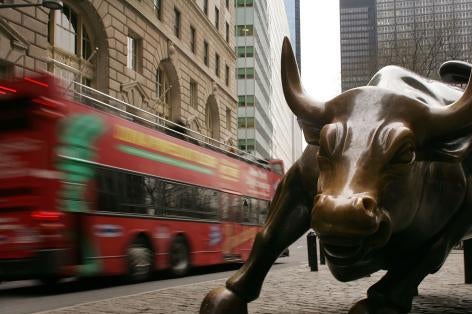Well, this certainly isn’t going to win Wall Street any friends. Under a deal announced by the Justice Department on Wednesday, five major banks will plead guilty to manipulating global currency markets and interest rates, and will pay more than $5 billion in combined penalties as a result. None of the traders involved in the crimes, however, has been indicted.
Under the deal, Citigroup, JPMorgan Chase, Barclays, and the Royal Bank of Scotland will all plead guilty to conspiring to manipulate the price of U.S. dollars and euros. According to federal authorities, traders at those banks used coded messages to share customer orders via online chat rooms, while also misleading their clients about the true price of currencies. In the words of one Barclays employee cited by federal authorities: “If you ain’t cheating, you ain’t trying.”
A fifth bank, UBS, was given immunity in that antitrust case, according to the Wall Street Journal, but will plead guilty to separate charges that it manipulated the London Interbank Offered Rate, or Libor, a benchmark interest rate that banks charge each other for short-term loans.
The banks are expected to formally enter their guilty pleas later on Wednesday. Here’s the New York Times’ DealBook with some of the most infuriating details involved in the first four banks’ dirty dealings:
The traders were supposed to be competitors, but much like companies that rigged the price of vitamins and automotive parts, they colluded to manipulate the largest and yet least regulated market in the financial world, where some $5 trillion changes hands every day, prosecutors said.
Underscoring the collusive nature of their contact, which often occurred in online chat rooms, one group of traders called themselves “the cartel,” an invitation-only club where stakes were so high that a newcomer was warned, “Mess this up and sleep with one eye open.” To carry out the scheme, one trader would typically build a huge position in a currency and then unload it at a crucial moment, hoping to move prices. Traders at the other banks agreed to, as New York State’s financial regulator put it, “stay out of each other’s way.”
The banks say they long ago dismissed most of their employees involved in the schemes. While none of the traders is facing prison time for their role in the crimes, the banks’ guilty pleas still offer something of a symbolic victory for federal prosecutors. Until now, most banks implicated in the numerous scandals since the 2008 financial crisis had avoided directly shouldering legal responsibility by forcing their smaller subsidiaries or specific banking units to plead guilty.
Of course, Wednesday’s plea deal comes with its own silver lining for Wall Street: The banks have already obtained waivers from the Securities and Exchange Commission that will allow them to continue to conduct business as ususal. “In fact,” the Times reports, “the cases were not announced until after the S.E.C. had time to act.”
